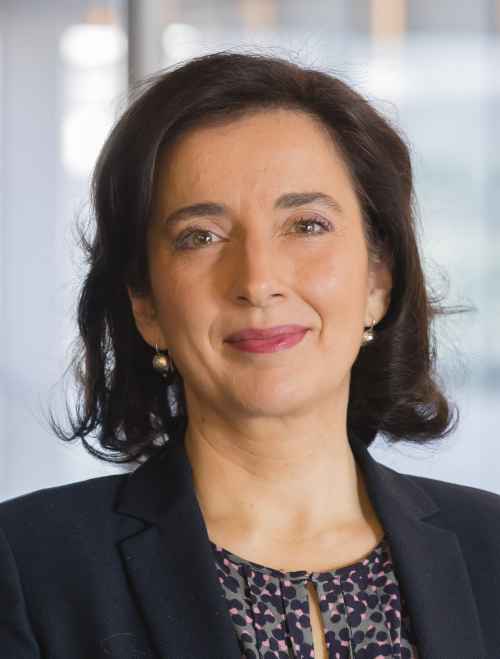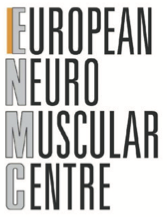
The European Neuromuscular Centre (ENMC) is launching a mentoring programme this year aimed at mid-career neuromuscular disease specialists. This programme is open to doctors and scientists, as well as to individuals who wish to deliver innovation and federative and co-operative leadership with a view to achieving progress for the common good.
Interview with Dr Ana Ferreiro, MD, PhD, Scientific Director of the ENMC, Head of the Fundamental and Translational Myology team at the University of Paris/CNRS Functional and Adaptive Biology (FAB) Laboratory, and clinician at the Institute of Myology.
What unmet need does the establishment of this programme address?
 This programme was born from observation and evaluation. When I became Scientific Director of the ENMC, thinking about the needs that potentially existed in this area, I came to the realisation that I could not see a new generation of leaders strongly emerging in the 35 to 40/45 year age range, despite the fact that there were some very talented individuals. We have made giant strides in neuromuscular disease (NMD) research. Now, in order to continue to advance in the most effective way possible, we need leaders who are able to drive innovation and new ideas, and at the same time to help all the stakeholders in the field to work together constructively, including other scientists, healthcare professionals and patients, patient associations, funding providers, and also the healthcare industry, society and stakeholders in healthcare politics. You need individuals with a fairly specific profile, with the ability to talk, to engage in dialogue and to listen to these different cultures, and the ability to unite them so they can progress together, in a way that ensures this progress is faster and more effective. My discussions with other international leaders and an evaluation of the Young Scientist programme (see below) have helped to confirm this feeling and this need.
This programme was born from observation and evaluation. When I became Scientific Director of the ENMC, thinking about the needs that potentially existed in this area, I came to the realisation that I could not see a new generation of leaders strongly emerging in the 35 to 40/45 year age range, despite the fact that there were some very talented individuals. We have made giant strides in neuromuscular disease (NMD) research. Now, in order to continue to advance in the most effective way possible, we need leaders who are able to drive innovation and new ideas, and at the same time to help all the stakeholders in the field to work together constructively, including other scientists, healthcare professionals and patients, patient associations, funding providers, and also the healthcare industry, society and stakeholders in healthcare politics. You need individuals with a fairly specific profile, with the ability to talk, to engage in dialogue and to listen to these different cultures, and the ability to unite them so they can progress together, in a way that ensures this progress is faster and more effective. My discussions with other international leaders and an evaluation of the Young Scientist programme (see below) have helped to confirm this feeling and this need.
By what means do you believe you can help this next generation of leaders to emerge?
Our Mid-Career Programme targets individuals who are at the mid-stage of their careers, and so already highly specialised and well-known in the field, who have produced very good quality work, but who have not yet emerged with the stature of “international leader”. We have tried to understand what it is they need to be able to progress effectively. The fact that there is a need to learn how to become a leader was confirmed in my eyes during the course of individual discussions, since, in addition to the required scientific and clinical qualities, these individuals need to understand how to build, how to work with others.
Indeed, with the ENMC team, and in particular its managing director, Dr Breukel, we conducted an evaluation among young researchers who had benefited from the Young Scientist programme, which has been in place for the last 7 years and is now referred to as the Early Career Programme. What emerged from the interviews and the questionnaire evaluations is that this programme has been crucial to them, motivating them to commit to the NMD field, and that it had contributed a great deal to their careers. Indeed, if the individuals who are interested in the NMDs have a real passion for these rewarding subjects, because of the possibility of combining fundamental research with more clinical approaches, they tend to be very attuned to inspiring leaders that they encounter on their journey, and they have expressed their wish to benefit from longer periods of contact with these leaders.
What you mean by “attuned”?
I remember that I was lucky enough to be able to co-organise my first ENMC workshop with Michel Fardeau when I was very young, at the end of the 90s. I remember sitting at the table alongside the best experts in the field, in an environment of trust, mutual respect and especially co-operation, in order to pursue a common goal, greater than any individual present. And I remember having the sense that I had found my scientific family!
So the idea is to recreate similar conditions?
Indeed, we have established a working group to understand this state and to design an ecosystem in which the most promising young scientists have this sense and want to commit to this field over the long term. The young scientists in the Young Scientist programme told us how much they had appreciated this opportunity to build a network and to have more interactions with inspiring leaders, and that the most crucial aspect in terms of making a commitment was the possibility of opening up opportunities, work positions.
The important thing now is to provide resources, to empower those at the mid-career stage who have the greatest potential to become drivers in the field, partly to favour and speed up scientific and medical progress in the NMDs, and partly to try to help them achieve the highest position they are able to, where they will have the ability to open doors for their younger colleagues. We are using personal career progression not as an end in itself, but as a means to bring about constructive, collaborative, unifying and innovative progress in the field of NMDs.
In practical terms, how will this programme be executed?
We have created forms so that mentees can express the leadership qualities and skills they would like to develop or acquire (leadership, team management or co-creation with patient associations, for example), and so that mentors can express the skills they would like to impart. An ad hoc committee combines a mentee with two mentors, one strongly rooted in the field and the other providing a more external outlook, who together can provide the mentee with the desired skills in a complementary manner. Mentees and mentors meet three or four times per year over a period of three or four years, to think strategically about defining a direction and the resources to be deployed and the skills to be acquired so that the mentee can reach his/her desired destination.
Have you received candidate applications for this programme?
Yes, around 15 mentors who are currently leaders in different countries have very generously made a commitment, and other leaders interested and motivated to impart skills are welcome at any time; all they have to do is contact us. In terms of the mentees, around 10 people have applied so far. Individuals may apply until July 2021. All the procedures are described at https://www.enmc.org/mid-career-mentoring-programme/introduction/
https://www.enmc.org/mid-career-mentoring-programme/introduction/
